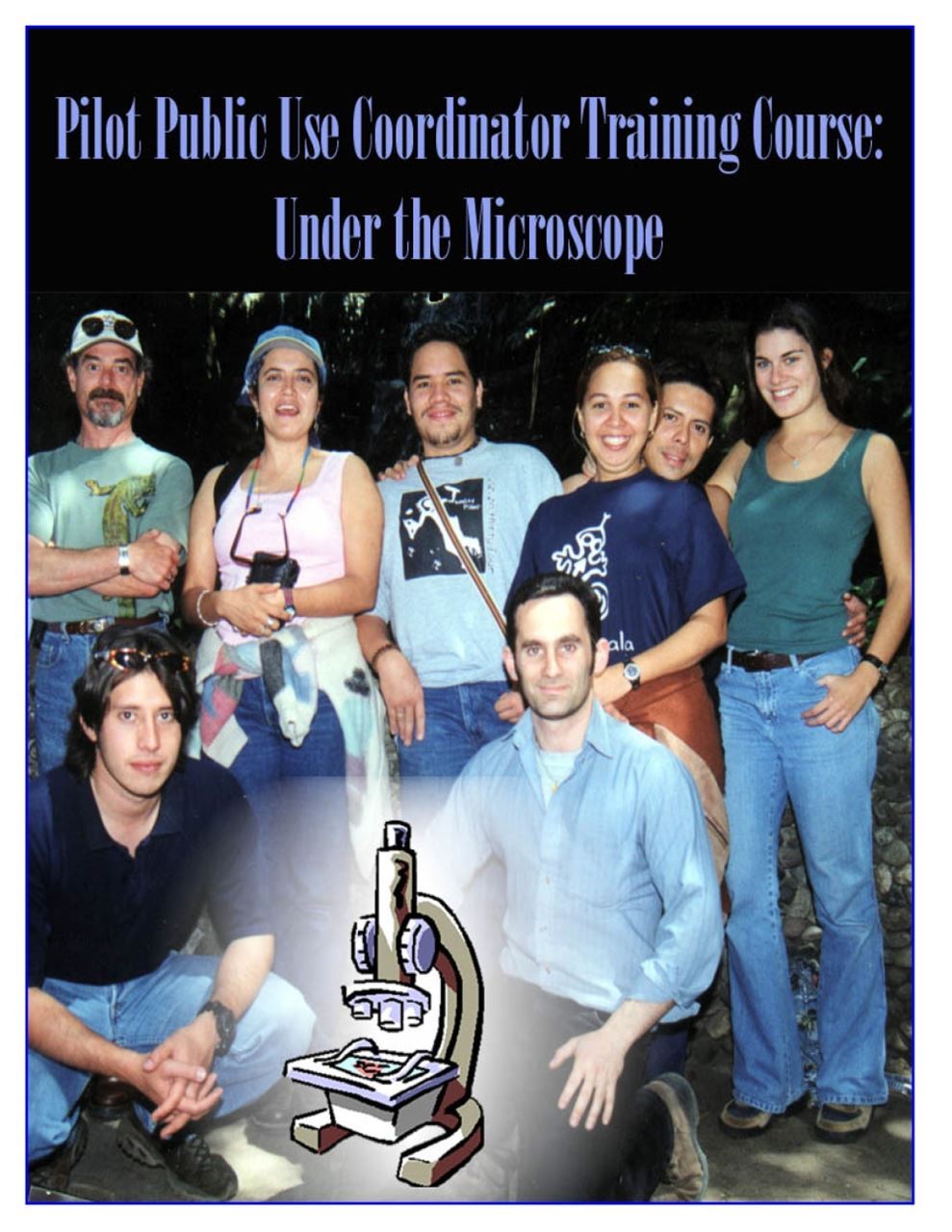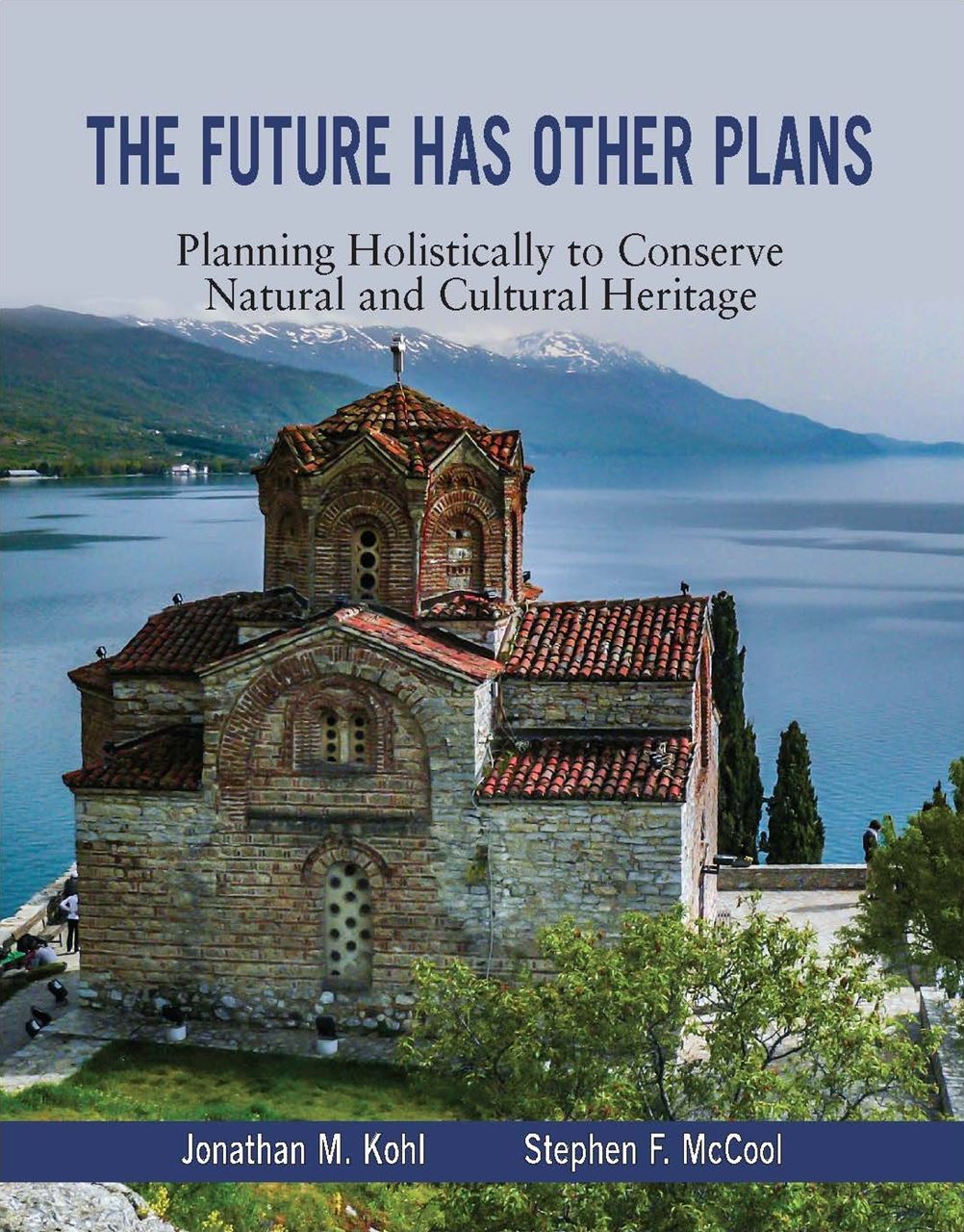| Advancing Integral Heritage Management |
FOCUS AREAS | RESEARCH AND SELF-REFLECTIONIn 2000 when the Public Use Planning Program was still part of RARE Center for Tropical Conservation, PUP held its first training for public use coordinators from four Mesoamerican World Heritage Sites. The training lasted a grueling 40 days that left everyone exhausted. The training team went on to write a critical self-reflective evaluation about its experience,
Historical Learning Highlights 2023. Publication of the PUP Collaboratory summary. This central project represents a new level of institutionalized learning and knowledge production. 2021. Culmination of research beginning in 2016 about different forms of protected area zone with the goal of creating a new model of condition-based zoning in collaboration with Costa Rica's Tropical Science Center. This research project resulted in a field test in Monteverde Cloud Forest, a peer-reviewed article in the Parks journal, and a methodological guide for which in 2022, we offer a course to use. 2020. University of Costa Rica student does interpretation postgraduate project to develop interpretation training materials in Costa Rica. 2019. Wake Forest College student uses holistic/Integral lens to study the work context of a private reserve in Costa Rica for its capacity to maintain and develop an interpretation training program. 2018. PUP board conducts first self-assessment. 2016. “The Future Has Other Plans: Planning Holistically to Conserve Natural and Cultural Heritage.” Jon Kohl & Steve McCool, Fulcrum Publishing (2016). 2015 PUP Evora. “World Heritage City Évora, Portugal Transcends Multi-stakeholder Conflict through New Participatory Public Use Planning Process.” (2015-2016). Mátria Digital. 2014 Master's Thesis. Vietnamese student at Meiji University in Tokyo studies “Community participation in tourism planning: Case study of Public Use Planning in Hoi An Ancient City, Vietnam” 2011. “Managing the Tourism Flood in Central Vietnam.” (February 2011). UNESCO’s World Heritage. 2008. PUP participated in the “Meeting of the Minds: Limits of Acceptable Change and Public Use Planning,” seminar sponsored by the Center for Protected Area Management and Training, Colorado State University. 2006. PUP collaborated with The Nature Conservancy and CATIE university to study implementation barriers for Costa Rican National Park management plans. Results published (2007) as a TNC technical paper, “Barreras para la Implementación de los Planes de Manejo de las Áreas Silvestres Protegidas de Costa Rica” by Gabriel Robles, Nelly Vásquez, Róger Morales, Jon Kohl and Bernal Herrera. “Mental Models that Block Strategic Plan Implementation.” (May 2006). Reflections, Society for Organizational Learning. “Converting Unseen and Unexpected Barriers to Park Plan Implementation into Manageable and Expected Challenges.” (April 2006). IUCN’s Parks. 2002. Jon Kohl served as external academic advisor to Duke University Master’s student, Austin Lane, in her thesis research on plan implementation barriers, “Obstacles to Implementing Strategic Plans: A Study of Honduran Protected Areas (2003).” “Park Planning for Life.” (March/April 2002). Legacy, magazine of the National Interpretation Association. After the first PUP training in Antigua, Guatemala that lasted a grueling 40 days, PUP coordinators Jon Kohl and Susan Wofsy wrote a scathing self-evaluation applauded by RARE’s leaders. PUP used the report to completely redesign the training. See above. 2001. RARE hired two external evaluators to evaluate PUP’s materials and approach: Drs. Stephen McCool of the University of Montana (global expert in wildlands planning and management) and Sam Ham of the University of Idaho (guru of environmental interpretation and its application to protected areas). Their comments confirmed and improved PUP. Both are now PUP advisors. See also PUP author publications. |

 recommending significant changes and truly leveraging the suffering that its participants endured. Nonetheless, the Tikal contingent went on to facilitate a strong public use management component to the site's management plan and the Rio Platano Biosphere Reserve used its learnings to a lesser degree in Honduras.
recommending significant changes and truly leveraging the suffering that its participants endured. Nonetheless, the Tikal contingent went on to facilitate a strong public use management component to the site's management plan and the Rio Platano Biosphere Reserve used its learnings to a lesser degree in Honduras. Similarly when PUP began in 1998 in response to an apparent pandemic of partially and completely unimplemented protected area management plans across Latin America, it started with a research mandate to discover why plans so often end unimplemented, to look deeper than a simple lack of resources which managers and planners so often blame when their plans fail. This research effort, although still ongoing, culminated in a book on this topic which now serves as the theoretical basis for the PUP Consortium.
Similarly when PUP began in 1998 in response to an apparent pandemic of partially and completely unimplemented protected area management plans across Latin America, it started with a research mandate to discover why plans so often end unimplemented, to look deeper than a simple lack of resources which managers and planners so often blame when their plans fail. This research effort, although still ongoing, culminated in a book on this topic which now serves as the theoretical basis for the PUP Consortium.